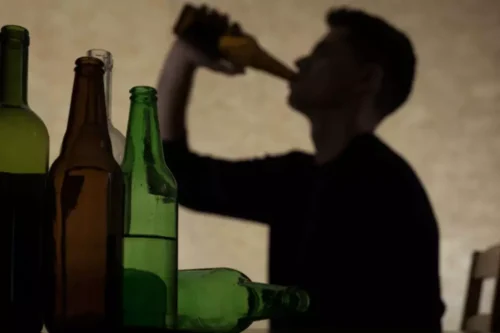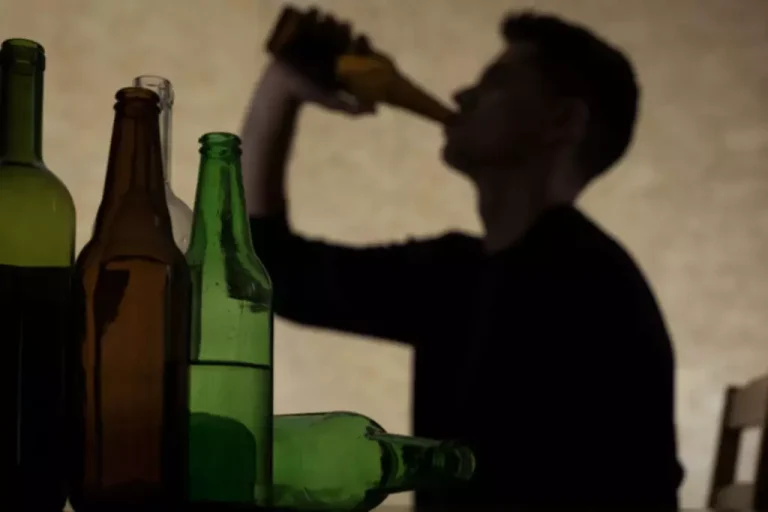
If identified and treated early, someone with an alcohol addiction may be able to avoid major consequences of the disease. Below are samples of e-health tools developed with NIAAA funding. Each of these fee-based tools has a research base that shows its potential to help people cut down or quit drinking.

Supporting your loved one’s recovery
Unhealthy alcohol use includes any alcohol use that puts your health or safety at risk or causes other alcohol-related problems. It also includes binge drinking — a pattern of drinking where a male has five or more drinks within two hours or a female support for those who struggling with alcohol addiction has at least four drinks within two hours. Binge drinking causes significant health and safety risks. That safety and security set the stage for real healing.
- Too often we are so angry or discouraged that we take it for granted when things are going better.
- These changes can remain long after you stop using the drug.
- Encourage your loved one to develop new hobbies and interests that don’t involve drinking.
- Understanding the available treatment options—from behavioral therapies and medications to mutual-support groups—is the first step.
Gen Z has ‘a vocabulary of recovery’

They also may be resentful and accuse you of betrayal or being a hypocrite. But alcohol use disorder is actually a brain disease. Alcohol causes changes in your brain that make it hard to quit. Trying to tough it out on your own can be like trying to cure appendicitis with cheerful thoughts. Alcohol use disorder is what doctors call it when you can’t control how much you drink and have trouble with your emotions when you’re not drinking.
- Encourage your loved one to cultivate new interests.
- They may not accept the negative effects their behavior has on themselves and others.
- A poorly planned intervention can make the situation worse.
- You’re likely to start by seeing your primary health care provider.
- The more symptoms you have, the more urgent the need for change.
- Whether you want to quit drinking altogether or cut down to healthier levels, these guidelines can help you get started on the road to recovery today.
Can People With Alcohol Use Disorder Recover?
- Whether you choose to tackle your alcohol addiction by going to rehab, getting therapy, or taking a self-directed treatment approach, support is essential.
- Couples and family counseling incorporates spouses and other family members in the treatment process and can play an important role in repairing and improving family relationships.
- Laura Van Antwerp, 39, from Pennsylvania, started drinking when she was a teenager, before eventually quitting at the age of 33.
- AUD is characterized by an impaired ability to stop or control alcohol use despite adverse social, occupational, or health consequences.
- Witnessing your loved one’s drinking and the deterioration of your relationship can trigger many distressing emotions, including shame, fear, anger, and self-blame.
Drug addiction can start with experimental use of a recreational drug in social situations, and, for some people, the drug use becomes more frequent. For others, particularly with opioids, drug addiction begins when they take prescribed medicines or receive them from others who have prescriptions. Tell your loved one that you’re worried they’re drinking too much, and let them know you want to be supportive. Try to roll with any resistance to your suggestions. The person may be in denial, and they may even react angrily to your attempts.
- Trigger warning – this article discusses addiction which some readers may find distressing.
- It can take 10 or more attempts at treatment before someone makes progress on overcoming an addiction.
- When you spend time together, try to suggest activities that don’t involve alcohol.
Ideally, health care providers will one day be able to identify which AUD treatment is most effective for each person. These advances could optimize how treatment decisions are made in the future. Cognitive–behavioral therapy can take place one-on-one with a therapist or in small groups. This form of therapy is focused on identifying the feelings and situations (called “cues”) that contribute to heavy drinking and managing stress that can lead to a return to drinking. The goal is to change the thought processes that lead to alcohol misuse and to develop the skills necessary to cope with everyday situations that might trigger alcohol misuse. Also known as “alcohol counseling,” behavioral treatments involve working with a health care provider to identify and help change the behaviors that lead to alcohol problems.

Remember that changing long-standing patterns is hard, takes time, and requires repeated efforts. We usually experience setbacks along the way, learn from them, and then keep going. Currently, there are three medications approved for AUD in the United States, and they are an effective and important aid in the treatment of people with this condition. Acceptance- and mindfulness-based interventions increase awareness and acceptance of present-moment experiences.

What are the symptoms of alcoholism?

Despite the name, these are not bath products such as Epsom salts. Substituted cathinones can be eaten, snorted, inhaled or injected and are highly addictive. These drugs can cause severe intoxication, which results in dangerous health effects or even death. As time passes, you may need larger doses of the drug to get high. As your drug use increases, you may find that it’s increasingly difficult to go without the drug. Attempts to stop drug use may cause intense cravings and make you feel physically ill.

